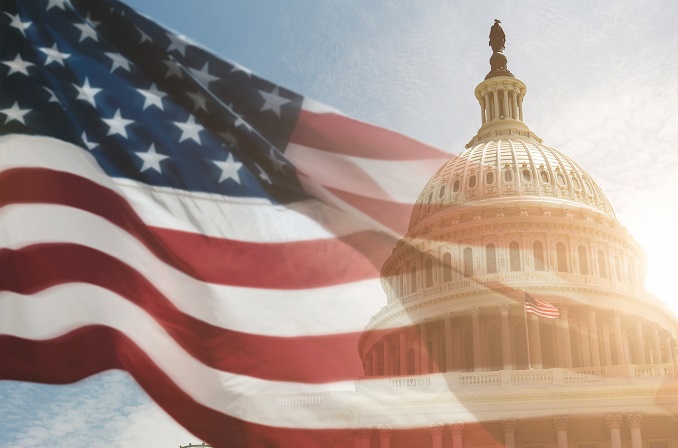The U.S. House of Representatives passed a $9 billion spending cut package late Thursday, targeting federal funding for liberal, pro-abortion media outlets NPR and PBS. The legislation, which codifies cuts proposed by the Department of Government Efficiency (DOGE), now heads to President Donald Trump’s desk for his expected signature.
The House vote, a narrow 216-213, followed Senate approval early Thursday in a 51-48 vote, with Republicans overcoming opposition from Democrats and two GOP members, Representatives Brian Fitzpatrick of Pennsylvania and Michael R. Turner of Ohio. The package, initiated by the White House Office of Management and Budget, $1.1 billion from the Corporation for Public Broadcasting, effectively ending taxpayer subsidies for NPR and PBS.
Republicans, including House Rules Chairwoman Virginia Foxx of North Carolina, countered Democrat objections, saying that public media can sustain itself through private funding, like other media outlets.
The bill’s passage marks a significant win for the Trump administration, which used a rescissions process to bypass the Senate’s 60-vote filibuster threshold, allowing approval with a simple majority. The measure, representing about 5% of the $190 billion in savings identified by DOGE, is seen as a test case for further cuts. “The Republican Party and President Trump and everybody that works on our side has promised fiscal responsibility and fiscal discipline and we’re delivering on those promises again tonight,” House Speaker Mike Johnson, a Louisiana Republican, told reporters after the vote.
With the July 18 deadline looming, Trump is expected to sign the bill promptly, formalizing the cuts and advancing the pro-life movement’s goal of redirecting federal resources away from entities perceived as hostile to their values.
Indiana Sen. Jim Banks, a vocal supporter of the cuts, has championed the effort, authoring the Defund NPR Act earlier this year to bar federal dollars from reaching NPR directly or indirectly. In a June 4 post on X, Banks declared, “The American taxpayer should not be forced to fund Democratic propaganda NPR.”
Please follow LifeNews on Rumble for the latest pro-life videos.
President Trump has been a driving force behind the push, asserting that NPR and PBS exhibit a liberal bias that distorts fair coverage. In a July 10 Truth Social post, he warned Republicans against preserving public media funding, stating, “It is very important that all Republicans adhere to my Rescissions Bill,” threatening to withhold endorsements from those who oppose the cuts.
The Senate vote, which took place at 2:30 a.m., saw Republicans vote to defund PBS and NPR and Democrats supporting it.
Conservatives argue that defunding PBS and NPR frees taxpayers from subsidizing outlets that push left-leaning narratives.
House Speaker Mike Johnson, R-La., urged Senate Republicans to pass the bill without changes to avoid delays, calling the defunding of public broadcasters and USAID “low-hanging fruit.” The House, which passed the measure on June 12 along party lines, must now approve the Senate’s version by Friday to meet the deadline and send it to Trump for his signature.
If signed into law, the bill would fulfill a key conservative priority, redirecting taxpayer dollars away from what many GOP lawmakers view as ideologically driven media. It comes weeks after Congress passed and Trump signed a bill to defund the Planned Parenthood abortion business – which has sued to recover the taxpayer funds.
CatholicVote had endorsed the package ahead of Thursday’s vote, with CatholicVote cofounder Joshua Mercer emphasizing the importance of its measure defunding public broadcasting.
“Many liberal pundits insist that public broadcasting provides wonderful programming that the American people want,” Mercer said. “If that’s the case, they don’t need taxpayer funding or the strings that come with it.”
“PBS and NPR have a long history and a strong fan base. They can easily survive with subscriptions or sponsorships,” Mercer added. “There’s no reason to continue borrowing money from China to keep media companies on the dole.”
NPR CEO Katherine Maher testified that she had “never seen any instance of… political bias determining editorial decisions” at her network. “Republicans,” however, “noted a prior report showing that all 87 of NPR’s editorial staff in the D.C. area were registered Democrats.”
The CPB, a congressionally chartered nonprofit, distributes about $535 million annually to public radio and television stations, with a portion supporting NPR and PBS. While NPR receives roughly 1% of its budget directly from federal funds and PBS about 16%, local stations rely more heavily on CPB grants, which can account for 8% to 10% of their budgets.
The post House Passes Bill Defunding NPR and PBS, Sends Measure to President Trump appeared first on LifeNews.com.
Click this link for the original source of this article.
Author: Steven Ertelt
This content is courtesy of, and owned and copyrighted by, https://www.lifenews.com and its author. This content is made available by use of the public RSS feed offered by the host site and is used for educational purposes only. If you are the author or represent the host site and would like this content removed now and in the future, please contact USSANews.com using the email address in the Contact page found in the website menu.








